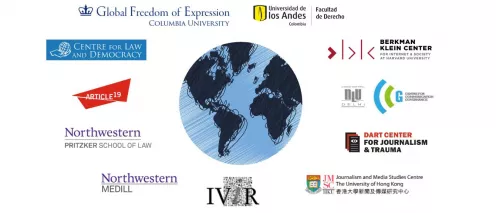
Freedom of Expression Without Frontiers
Berkman Klein Center Joins Columbia University Led Partnership for a Freedom of Expression Digital Teaching Portal
In partnership with Columbia Global Freedom of Expression and nine other Universities and civil society organizations from around the world, the Berkman Klein Center is pleased to promote the adoption of a global approach to the teaching of free speech through the new teaching portal Freedom of Expression Without Frontiers.
Freedom of Expression Without Frontiers grew out of meetings held at Columbia University, which concluded that the teaching of free speech, media law or communication remains heavily centered on one country and one discipline, and as such is badly out of alignment with the global reality, including the global information ecosystem of the 21st century.
Freedom of Expression Without Frontiers offers close to 300 academic and training resources on the laws, institutions and actors that have founded a global system of freedom of expression, information and media. Its target audiences include educators who wish to design and offer courses and trainings on this global information ecosystem, and students, journalists, legal practitioners who wish to engage and understand free speech issues from a global standpoint.
The Portal includes pedagogical resources designed by professors and trainers from different parts of the world and across different disciplines. The website is organized under nine teaching modules, each of which covers a variety of themes within subject areas. For example, the module on Journalism offers resources exploring how international and regional law and bodies have defined the practice of journalism — from the rejection of licensing, to the protection of journalistic sources, and the importance of self-regulation — and debating the professional and ethical standards that ought to be demanded of citizen journalists and bloggers. Resources can be segmented further according to their fields and medium, such as required readings, international standards, jurisprudence, academic articles, Massive Online Open Courses (MOOC) and other multimedia resources.